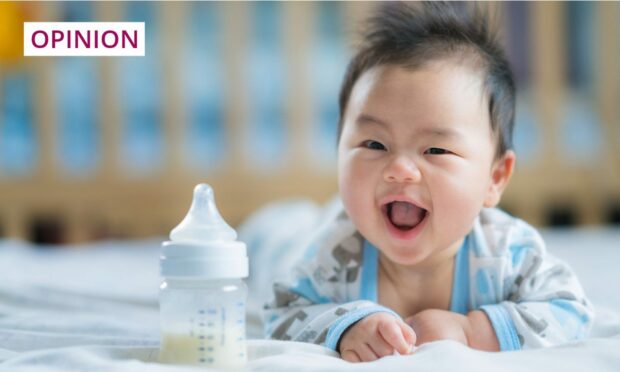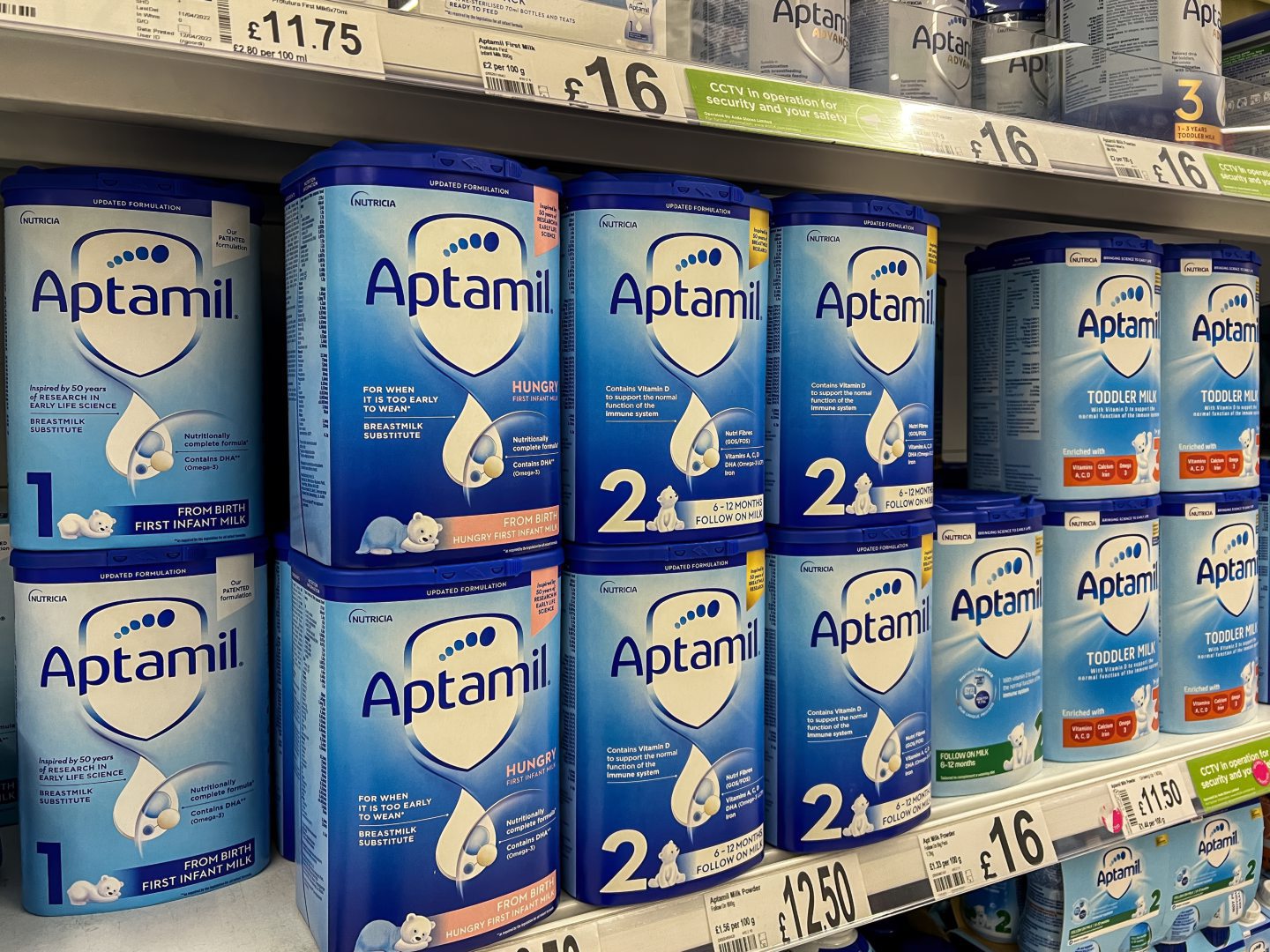What was the moment, I wonder, when Richard Walker, executive chairman of Iceland frozen food – a company specialising in such yummy delights as “Mr Brain’s 2 Pork Faggots” for £1, or Greggs’ sausage and bean melts for £2.50, if you’re feeling flush (other brands of frozen garbage are available) – decided he was an expert in nutrition. Infant nutrition at that.
“It’s bonkers,” he said last week, “because I can price promote and advertise on vape products, on chocolate, on crisps, and yet I can’t on infant formula.”
Oh, boohoo, Richard. Dry your eyes and I’ll tell you what’s bonkers. It’s listening to a man whose focus is on the wallet in his back pocket trying to convince the nation to abolish advertising restrictions on baby milk. It’s a store boss who wants to ignore every World Health Organisation (WHO) policy on infant feeding so that he can offer you a BOGOF deal on your baby’s dinner in the name of free market economics.
What does Walker think? Feeding babies is the equivalent of choosing between salt and vinegar and cheese and onion crisps?
No doubt that’s the attitude round the profit-driven boardroom table, but not round the family dinner table. There are good reasons why advertising restrictions on baby milk exist.
Britain has one of the worst breastfeeding rates in the world, despite evidence showing breastfed babies have a lower risk of heart disease, asthma, diabetes, obesity and cot death. Vape products, chocolate, and crisps are adult, economic choices. This is about the health of future generations who have no choice about what adults stick in their mouths.
Formula advertising rules are based on scientific evidence
The ban goes back a long way. In the 1970s, War on Want produced a report called, “The Baby Killer”. It highlighted the formula milk companies’ aggressive pursuit of new markets in developing countries.
They gave free samples to poor mothers with disastrous consequences. Why? Because, when the samples ran out, the mothers couldn’t afford expensive, western products – by which time their own (superior) milk had dried up. Because they were illiterate and couldn’t read the instructions on tins. And because they were living in unsanitary conditions where they didn’t have access to clean water. Their babies died.
Disappointingly, advertising restrictions have been described recently as anti-feminist: a patronising, paternalistic infringement of female liberties. They are no different to any public health restrictions based on scientific evidence: the ban on tobacco advertising or the restricted hours of alcohol sales.
A recent WHO report criticised the “manipulative marketing techniques” of formula companies which present their product as the natural choice. This ban is designed to prevent companies raking in profits while individuals suffer health consequence which the public pay for. If babies were breastfed for just three months, it is estimated the NHS would save £50 million per year on treating infant gastroenteritis alone.
We can promote breastfeeding and provide formula at the same time
There certainly ARE unaddressed feminist issues here. What’s the elephant in the room? It’s the notion that natural functions of the female body that don’t affect men – whether it’s menstruation or breastfeeding – are “icky” and best not talked about in public.
You can have topless photographs displayed in public, but try breastfeeding and some – men in particular – get all prudish and red-faced. If you want to talk about paternalistic, patronising attitudes, let’s start there.
Refusing to promote breastfeeding because some people can’t is a bit like saying walking shouldn’t be promoted for healthier living because some people use wheelchairs
Women’s bodies are great for sex and art, but Mother Nature’s functions? We’re smarter than her, nowadays. Sophisticated women use bottles. (Women who breastfeed have a lower chance of breast and ovarian cancer, but that gets glossed over, too.)
Then there’s the criticism that emphasising breastfeeding discriminates against women who can’t. Of course formula should be available for those who need it – or make an informed choice that they want it. But refusing to promote breastfeeding because some people can’t is a bit like saying walking shouldn’t be promoted for healthier living because some people use wheelchairs.
‘False feminism’
The phrase “false feminism” has been coined recently by Spanish football chief Luis Rubiales, who caused a furore when he kissed World Cup footballer Jenni Hermoso. There’s nothing “falsely feminist” about criticism of Rubiales. It wasn’t the kiss but the nature of the kiss. It wasn’t about consent but about respect.
Rubiales’ grabbing of his crotch, his handling of Hermoso’s face, his overenthusiastic kiss on the lips, displayed a disrespectful power dynamic that would be almost impossible to imagine from a female official to a male player.
Women’s bodies are capable of amazing things, from sport to childbearing. Those functions and abilities should be valued – in and out of sporting arenas.
Breastfeeding is not some primitive, slightly unsavoury eccentricity. It is healthier, cheaper (particularly in a cost-of-living crisis, when the price of some formula milk has risen by 45%) and doesn’t require special equipment or sanitation. And that, Mr Walker, is why you shouldn’t be allowed to inflate Iceland’s profits promoting baby milk in the same way you promote fizzy pop.
Catherine Deveney is an award-winning investigative journalist, novelist and television presenter












